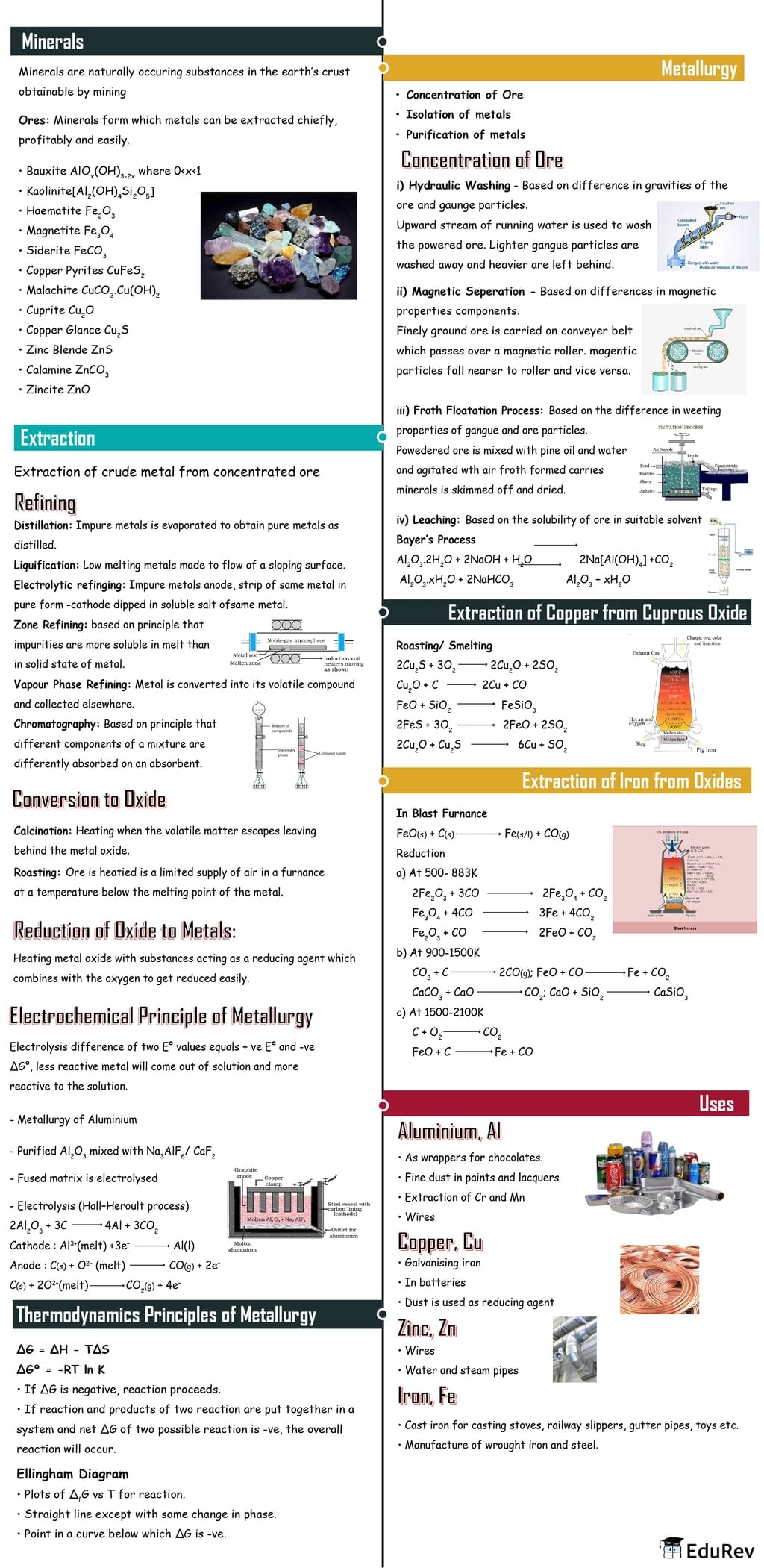NEET Exam > NEET Notes > Chemistry Class 12 > Mindmap: Isolation of Elements (Old NCERT)
Mindmap: Isolation of Elements (Old NCERT) | Chemistry Class 12 - NEET PDF Download

The document Mindmap: Isolation of Elements (Old NCERT) | Chemistry Class 12 - NEET is a part of the NEET Course Chemistry Class 12.
All you need of NEET at this link: NEET
|
108 videos|286 docs|123 tests
|
FAQs on Mindmap: Isolation of Elements (Old NCERT) - Chemistry Class 12 - NEET
| 1. What is the process of isolating elements? |  |
Ans. The process of isolating elements involves separating them from their compounds or mixtures. This can be done through various methods such as chemical reactions, electrolysis, and fractional distillation.
| 2. How is electrolysis used in the isolation of elements? |  |
Ans. Electrolysis is commonly used to isolate elements that are highly reactive or exist in compounds. In this process, an electric current is passed through a compound or a solution containing the compound. This causes the compound to break down into its constituent elements, which can then be collected.
| 3. What is fractional distillation and how is it used in element isolation? |  |
Ans. Fractional distillation is a method used to separate and isolate different components in a mixture based on their boiling points. In the context of element isolation, fractional distillation can be used to separate elements that have different boiling points, allowing for their individual collection.
| 4. Are there any specific challenges in the isolation of certain elements? |  |
Ans. Yes, some elements present unique challenges in their isolation. For example, highly reactive elements like sodium and potassium require special precautions to prevent them from reacting with air or moisture during the isolation process. Similarly, elements with very high melting points, such as tungsten or titanium, require specialized equipment to reach and maintain the necessary temperatures for isolation.
| 5. Can you provide an example of an element isolated through chemical reactions? |  |
Ans. One example of an element isolated through chemical reactions is the extraction of aluminum from its ore, bauxite. The ore is first converted into aluminum oxide through a chemical reaction, and then the aluminum oxide is further processed using electrolysis to obtain pure aluminum metal.

|
Explore Courses for NEET exam
|

|
Signup for Free!
Signup to see your scores go up within 7 days! Learn & Practice with 1000+ FREE Notes, Videos & Tests.
Related Searches

















